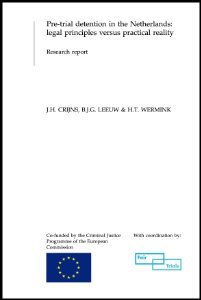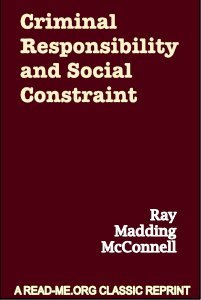By Crijns, J.H. ; B.J.G. Leeuw, and H.T. Wermink.
The goal of this report is to provide an overview of the use of pre-trial detention in practice in the Netherlands. In recent years there has been a lot of discussion and criticism of the (extensive) use of pre-trial detention in Dutch criminal procedures. In this report we will assess whether this criticism is justified, and if so, what steps need to be taken to alleviate the concerns that exist regarding pre-trial detention. The overarching conclusion of our research is that Dutch legislation on pre-trial detention meets the relevant standards of the European Court of Human Rights (ECtHR). This leads us to the conclusion that legislative changes are not strictly necessary. However, our research shows that the way in which the legal rules on pre-trial detention are applied in practice is rightly criticised by defence lawyers, academics and even judges themselves.
The Hague: Eleven International Publishing Co., 64p.





















